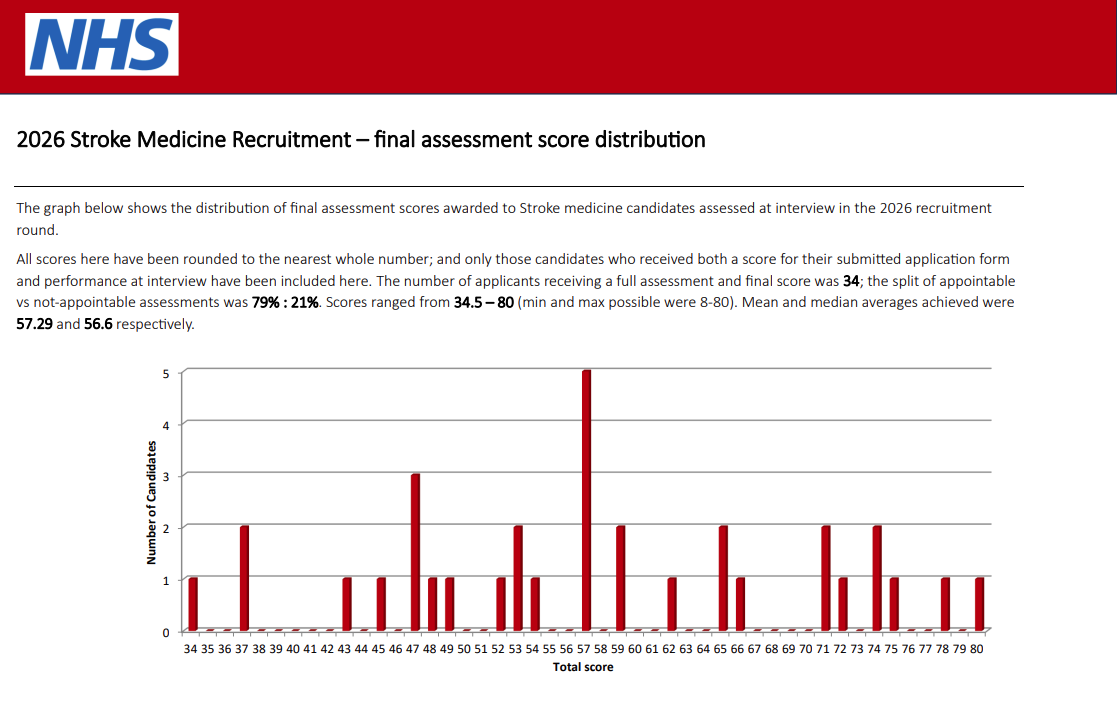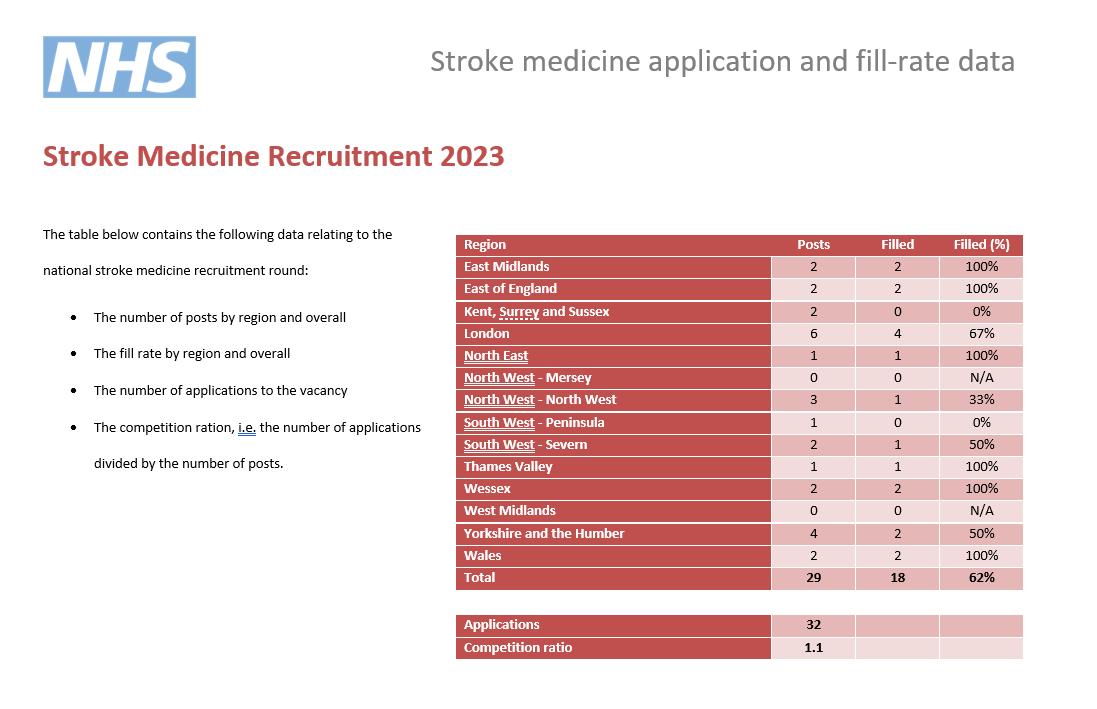This page contains information on the sub-specialty of stroke medicine.
Please note that stroke medicine is a sub-specialty and is only available to existing trainees in parent specialties. Some geriatric medicine and neurology programmes recruit nationally into programmes that will lead directly into stroke without the need for a further competitive recruitment process.
The specialty
The primary purpose of sub-specialist training in stroke medicine is to promote the development of physicians with the knowledge, skills and attitudes to function as an expert consultant resource within specialist stroke services.
The detailed role of a stroke physician will vary depending on the type of service within which they are practising.
The training programme recognises this, but expects all stroke specialists to have core knowledge and skills in all areas of diagnosis, investigation and treatment relevant to the care of stroke patients.
Stroke medicine trainee characteristics
Stroke medicine will particularly suit trainees who relish:
-
emergency clinical work across a broad group of neurological presentations
-
team working with other medical specialties and professions allied to medicine
-
a mixture of clinical settings, including inpatient and outpatient, acute and rehabilitation.
Working in stroke medicine
Stroke is the leading cause of adult disability in the UK and accounts for 11% of all deaths. Stroke services have undergone a national revolution in recent years to now command significant clinical - and political - attention.
Stroke medicine is currently a medical sub-specialty recognised since 2007 and encompasses emergency assessment and treatment of acute stroke, stroke prevention (including TIA assessment and treatment) and rehabilitation.
It involves close working with a range of other medical specialties (eg neurosurgery, diagnostic and interventional radiology / neuroradiology, cardiology, emergency medicine, specialist rehabilitation etc).
Stroke physicians - and trainees - are drawn from various backgrounds including geriatric medicine, neurology, rehabilitation medicine, acute medicine, cardiology and clinical pharmacology.
Entry to an approved stroke training programme (now 2 years total duration) is possible for trainees with a national training number in any of the parent specialties listed above, leading to the award of sub-specialty status in stroke medicine upon completion of training in the parent specialty.
The British Association of Stroke Physicians (BASP) has been an important influence upon recent developments in stroke medicine training. BASP is the professional body concerned with the advancement of stroke medicine - with membership of over 400 consultant and 200 trainees - and works closely alongside other organisations such as the Royal College of Physicians, UK Stroke Research Network, National Institute for Health and Clinical Excellence (NICE), European Stroke Organisation (ESO).
As the population ages stroke medicine is going to become more important and there are many exciting therapies and diagnostic techniques under development for both urgent and rehabilitation phases of care.
A typical day includes emergency assessment and treatment of suspected TIA and stroke, secondary prevention, and the opportunity to contribute to successful rehabilitation and symptom control - as well as close team working with colleagues from surprisingly diverse disciplines, opportunities for service development, teaching and research.
Few interventions in medicine can be as satisfying as helping neurological deficits and the resultant disability due to stroke melt away with urgent treatment or prevention of disabling stroke through prompt assessment of TIA.
Stroke medicine provides a challenging and rewarding career with constant variety and intellectual stimulation.
Medical Care
Find out more about stroke medicine and the services delivered by the specialty on Medical Care – the RCP’s online guide to service design.
Further information
Data
National stroke medicine recruitment has operated since 2019 and there is data from previous rounds to help guide your application. This includes:
- Competition ratios - application numbers submitted alongside the total vacancies.
- Total scores – the total score awarded to all candidates who completed the full recruitment process for a specialty (application and interview), including some analysis of scores.
- Fill rates - the number of vacancies available and number filled by region.



